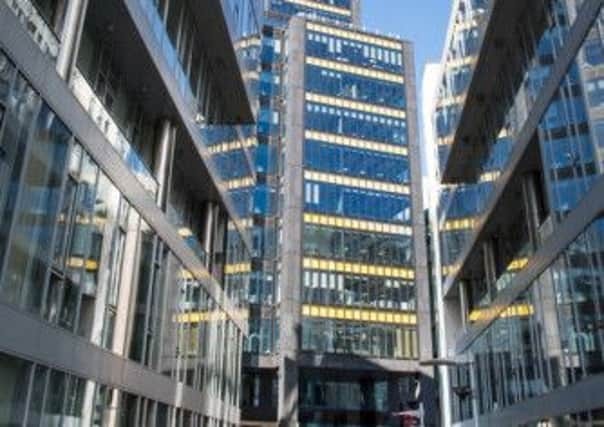Google searched the planet... and found Ireland


Just a few short years ago, Ireland was in the grip of an economic crisis. Rising debt levels, a property-market crash and the problems that had emerged in the country’s banks were stifling the country’s economy.
The boom had turned to bust in a matter of months, and young people were emigrating in their thousands. Unemployment soared as job losses were announced with alarming regularity, and thousands of businesses went to the wall.
Advertisement
Hide AdAdvertisement
Hide AdOffice buildings, newly completed, were uncertain of ever attracting the hoped-for tenants, and the shells of half-finished buildings littered Dublin’s city centre. Now things are looking up again, and that is partly due to the tech sector.
At the height of the financial crisis in September 2009, IDA Ireland – the state agency tasked with promoting foreign direct investment in Ireland - decided to go all out to promote the country as a leading location for innovation and technology, undertaking its largest ever advertising campaign in the United States. The campaign, which had an estimated budget of €2 million, offered a vision of a tech-business utopia, and featured Facebook’s chief operating officer Sheryl Sandberg.
The campaign billed Ireland as a place where ‘innovation comes naturally’ and was delivered through advertising on CNBC and Bloomberg, in the airports of New York, Chicago, San Francisco, and Washington, and in both the online and offline pages of the Wall Street Journal and the New York Times. Social media tactics were also deployed to start a conversation about ‘innovation Ireland’, and the IDA website exhibited success stories from some of its client companies.
Two print advertisements ran in a variety of business publications. The first proclaimed: ‘Facebook found a space for people who think in a certain way. It’s called Ireland.’ The second ad read: ‘Google searched the planet for the perfect location for their business. They came up with Ireland.’
Advertisement
Hide AdAdvertisement
Hide AdIt was a bold statement intended to counteract negative perceptions about Ireland that had followed the property crash and banking collapse. The aggressive PR campaign received critical acclaim, but the IDA was still under severe pressure. It needed to do more.
Up until 2010, the agency’s strategy had been built on a value proposition of tax, talent, track record, and technology. The IDA had a number of accolades to bring to the table when meeting with potential companies. According to the 2009 IMD World Competitiveness Yearbook, Ireland was ranked first for availability of skilled labour, first for availability of financial skills, and first for corporate taxes.
But, on the cusp of the second decade of the twenty-first century, these attributes were not enough. Similar models had been adopted elsewhere, and the cost of doing business was cheaper in those places too. Ireland’s competitiveness had declined, and it was quickly becoming clear that the country would need a financial bailout from the EU and IMF.
In 2010 the IDA made a deliberate move to attract emerging companies, mainly operating in new media, and offering high growth potential. It began targeting young companies in receipt of venture capital (VC) funding, which were looking to internationalise. The VC funding would give the start-ups room to expand, growing hopefully to the size of companies such as Google or Facebook in years to come. The move was a success, with the IDA successfully wooing start-ups such as Airbnb, Dropbox and Ancestry.com.
Advertisement
Hide AdAdvertisement
Hide AdTake a stroll around Dublin now and you’ll see a vibrant business sector, especially in the area that has become known as Silicon Docks. It’s approximately one square mile in size, but its influence is far more significant. On Barrow Street, where Google is based, property values are soaring as the US tech giant sprawls over several buildings. In its shadow are companies such as Facebook, LinkedIn and Twitter, along with incubators such as Dogpatch Labs that have made Silicon Docks their home. These stand shoulder to shoulder with start-ups and accelerators that have increased in number over the past couple of years. This is the result of some hard campaigning and marketing of a country that, until recently, was a tough sell.
* Silicon Docks: The Rise of Dublin as a Global Tech Hub, edited by Pamela Newenham, is available as paperback or ebook at Amazon.co.uk and Foyles.co.uk